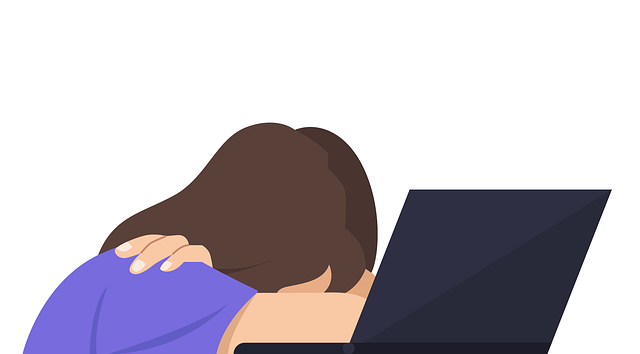Mental health challenges, especially postpartum depression, among young adults require specialized support. Effective therapy involves creating safe spaces through mental wellness groups facilitated by skilled leaders who encourage open dialogue and mutual support. These sessions incorporate confidence-boosting activities and mindfulness meditation to improve emotional intelligence and coping mechanisms. By fostering resilience and cultural sensitivity, group facilitation significantly enhances therapy outcomes, destigmatizes postpartum depression, and promotes overall well-being for young adults.
Mental wellness group facilitation plays a pivotal role in addressing emerging mental health issues among young adults. This article delves into the multifaceted approach of group therapy, highlighting its efficacy in managing conditions like postpartum depression. We explore techniques that foster resilience and coping mechanisms, tailored to this demographic. By understanding the unique challenges faced by young adults, facilitators can create supportive environments, offering evidence-based strategies for navigating mental health journeys. Discover practical insights on facilitating therapeutic groups, focusing on postpartum depression, designed to empower individuals towards healing.
- Understanding Mental Health Issues in Young Adults
- The Role of Group Facilitation in Therapy
- Effective Techniques for Facilitating Supportive Groups
- Addressing Postpartum Depression in a Group Setting
- Strategies for Fostering Resilience and Coping Mechanisms
Understanding Mental Health Issues in Young Adults

Mental health issues among young adults have become a growing concern, highlighting the need for specialized support and understanding within this demographic. This age group faces unique challenges that can significantly impact their overall well-being, including increased stress from academic pressures, social expectations, and the transition into adulthood. One prevalent issue gaining recognition is postpartum depression, which can affect new mothers, often going undiagnosed due to societal norms and the assumption that maternal happiness is universal during this period.
Effective facilitation techniques for mental wellness groups should address these concerns by fostering open dialogue and providing a safe space. Group leaders can enhance participants’ emotional intelligence through communication strategies, encouraging them to share experiences and offer mutual support. By incorporating confidence-boosting activities, individuals can learn coping mechanisms and develop resilience, ultimately promoting better mental health outcomes, especially for those dealing with issues like postpartum depression.
The Role of Group Facilitation in Therapy

Group facilitation plays a pivotal role in enhancing therapy for young adults grappling with issues like postpartum depression. In this collaborative setting, trained facilitators create a safe and supportive environment where individuals can share their experiences, fostering open dialogue and mutual understanding. Through structured activities and guided discussions, group members learn from one another’s journeys, gaining valuable insights into managing their mental health challenges. This collective approach not only complements individual therapy but also empowers participants with coping strategies that resonate within the group dynamic.
The technique is particularly effective in addressing the unique needs of young adults, who often seek connection and community when facing mental health struggles. By integrating practices like mindfulness meditation, which has gained prominence in Mental Health Policy Analysis and Advocacy, facilitators enable members to develop self-awareness and emotional regulation skills. This holistic approach, combined with increased social support, contributes significantly to improved outcomes in therapy, leading to heightened Mental Health Awareness and overall well-being among participants.
Effective Techniques for Facilitating Supportive Groups

Effective group facilitation plays a pivotal role in fostering supportive environments for young adults navigating mental health challenges, such as postpartum depression. One powerful technique is employing Mindfulness Meditation exercises to promote present-moment awareness and emotional regulation. By guiding participants through breathing techniques and non-judgmental observation of thoughts, facilitators create a safe space where individuals can explore and express their feelings openly.
Additionally, incorporating structured Risk Assessment for Mental Health Professionals ensures the well-being of both facilitators and group members. This proactive approach allows facilitators to identify potential risks early on, implement necessary safety measures, and provide appropriate support. Encouraging participants to develop individualized Self-Care Routine Development for Better Mental Health is another strategic method. Facilitators can offer guidance on healthy habits, stress management, and coping mechanisms, empowering young adults to take charge of their mental wellness in a supportive group setting.
Addressing Postpartum Depression in a Group Setting

Addressing postpartum depression (PPD) in a group setting offers a unique and beneficial approach to therapy for young adults experiencing this common yet devastating condition. Group facilitation techniques allow individuals to connect with peers who can relate to their struggles, fostering a sense of community and support. In this environment, participants can share their experiences, gain different perspectives, and learn from one another’s resilience.
A skilled facilitator can guide the group through effective mental wellness journaling exercises, encouraging members to reflect on their emotions, challenges, and coping mechanisms. This practice not only enhances self-awareness but also enables individuals to develop personalized strategies for managing PPD symptoms. Additionally, cultural sensitivity in mental healthcare practice is paramount when facilitating these groups, ensuring that diverse perspectives are respected and incorporated, as public awareness campaigns development can further educate and destigmatize postpartum depression within the community.
Strategies for Fostering Resilience and Coping Mechanisms

Fostering resilience and developing effective coping mechanisms are pivotal aspects of group facilitation for mental wellness, especially tailored to young adults navigating life’s challenges. Techniques such as encouraging participants to share their personal experiences and perspectives create a supportive environment where they learn from one another. This sense of community is enhanced through activities that promote active listening and empathy, skills essential for building strong social connections and a network of support.
Group discussions can delve into various strategies for self-care routine development, emphasizing the importance of prioritizing mental health in daily life. Topics may include mindfulness practices, stress management techniques, and promoting positive thinking as tools to combat postpartum depression and other common mental health issues among young adults. By implementing community outreach program ideas within the group setting, facilitators can further empower members to take charge of their well-being and inspire others facing similar struggles.
Mental wellness group facilitation plays a pivotal role in providing therapy for young adults, addressing issues like postpartum depression, and fostering resilience. By employing effective techniques discussed in this article—including supportive group dynamics and tailored strategies—facilitators can create safe spaces that empower individuals to navigate their mental health journeys. These approaches not only enhance coping mechanisms but also offer a unique, collaborative support network, ultimately contributing to improved mental wellness among young adults.














